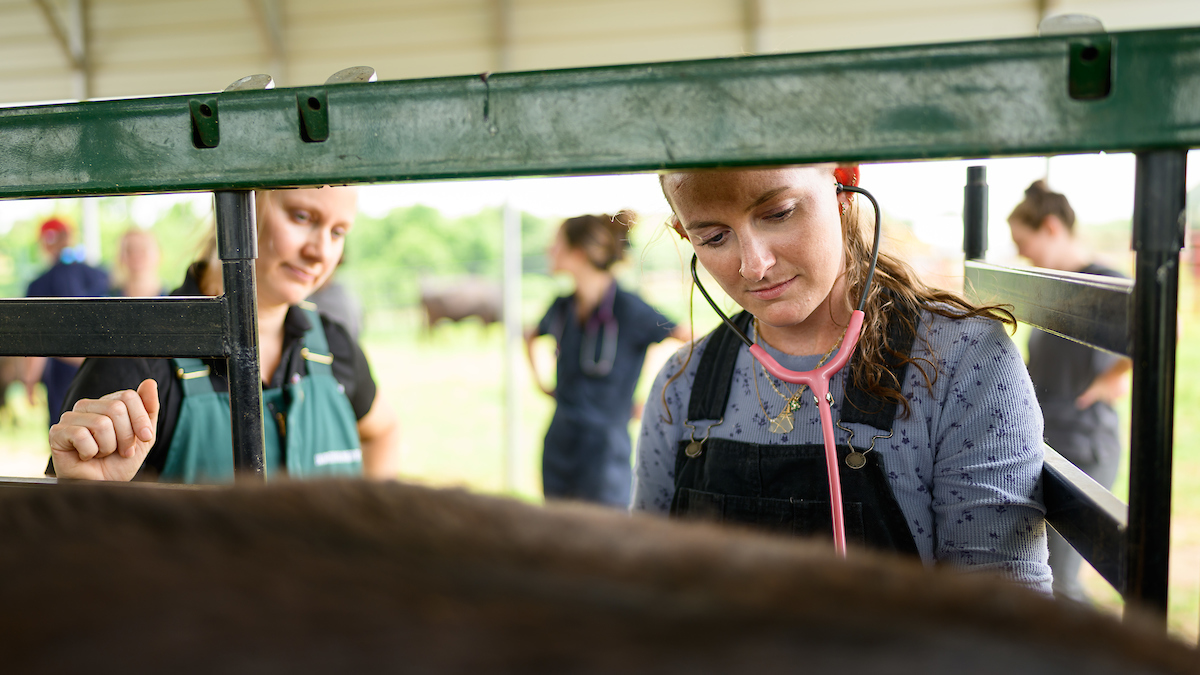NC State Names College of Veterinary Medicine Researcher as University Faculty Scholar
Dr. Nanette Nascone-Yoder, assistant professor of developmental biology in the Department of Molecular Biomedical Sciences at NC State University’s College of Veterinary Medicine, has been named one of the University Faculty Scholars.
The faculty members selected for the NC State University Faculty Scholars Program will, for five years, have the title “University Faculty Scholar” and will receive a $10,000 annually that may be used for supplemental salary or programmatic support. The program is part of the university’s strategic initiative to invest in and retain top faculty. It is funded by gifts totaling $5.7 million: $3 million from Jim and Ann Goodnight and $2.7 million from the William R. Kenan Jr. Charitable Trust.
“Investing in retaining and attracting the best faculty to teach our students and lead innovative research that improves lives and enhances the state’s economy is a key strategic goal for NC State,” Chancellor Randy Woodson said in announcing the Faculty Scholars. “The generous support of Jim and Ann Goodnight and the Kenan Jr. Charitable Trust enables NC State to make this strategic investment in some of our most outstanding and promising faculty scholars, for the benefit of our students as well as the citizens of North Carolina.”
Dr. Nascone-Yoder’s recent research focus involves digestive track issues and

disorders, specifically intestinal malrotation–a condition that occurs in as many as one in 500 human births and poses a significant risk for life-threatening complications in babies and children. Dr. Nascone-Yoder’s lab in the Center for Comparative Medicine and Translational Research (CCMTR) employs chemical genetic strategies in amphibian embryos to investigate the biological process that causes the digestive tract to develop, seeks to understand the etiology of intestinal malrotation, and helps define the effects of chemicals and toxins on gut development.
“Intestinal malrotation is a very common condition,” says Dr. Nascone-Yoder. “We’re very good at fixing problems after the fact, but no one has really paid a lot of attention to how the gastrointestinal tract forms to begin with. If we can determine exactly what needs to happen for a gastrointestinal tract to form properly, then we may be better able to discover the factors that lead to malformation.”
Dr. Nascone-Yoder earned a doctoral degree from Harvard University in 1997 and served as an assistant and then associate professor at Eckerd College before joining the College of Veterinary Medicine faculty in 2004. She is also an associate faculty member in the NC State Department of Environmental and Molecular Toxicology and a member of the University of North Carolina/ NC State University Center for Gastrointestinal Biology and Disease.
This is the initial year of the Faculty Scholars Program. Recipients were selected through a college nomination process with input from senior faculty. Scholars are assistant professors who have been reappointed for a second term, associate professors, or full professors within the first three years of appointment at that rank.
[section_subtitle] For more information: [/section_subtitle]
Dr. Nanette Nascone-Yoder writes about how in studying the origins of intestinal birth defects her team may have found a way to stop the growth and spread of cancerous tumors. Read the CVM Magazine article.
Tracing Development of Gastrointestinal Tract
CCMTR Research Finds Compound that May Inhibit Tumors


